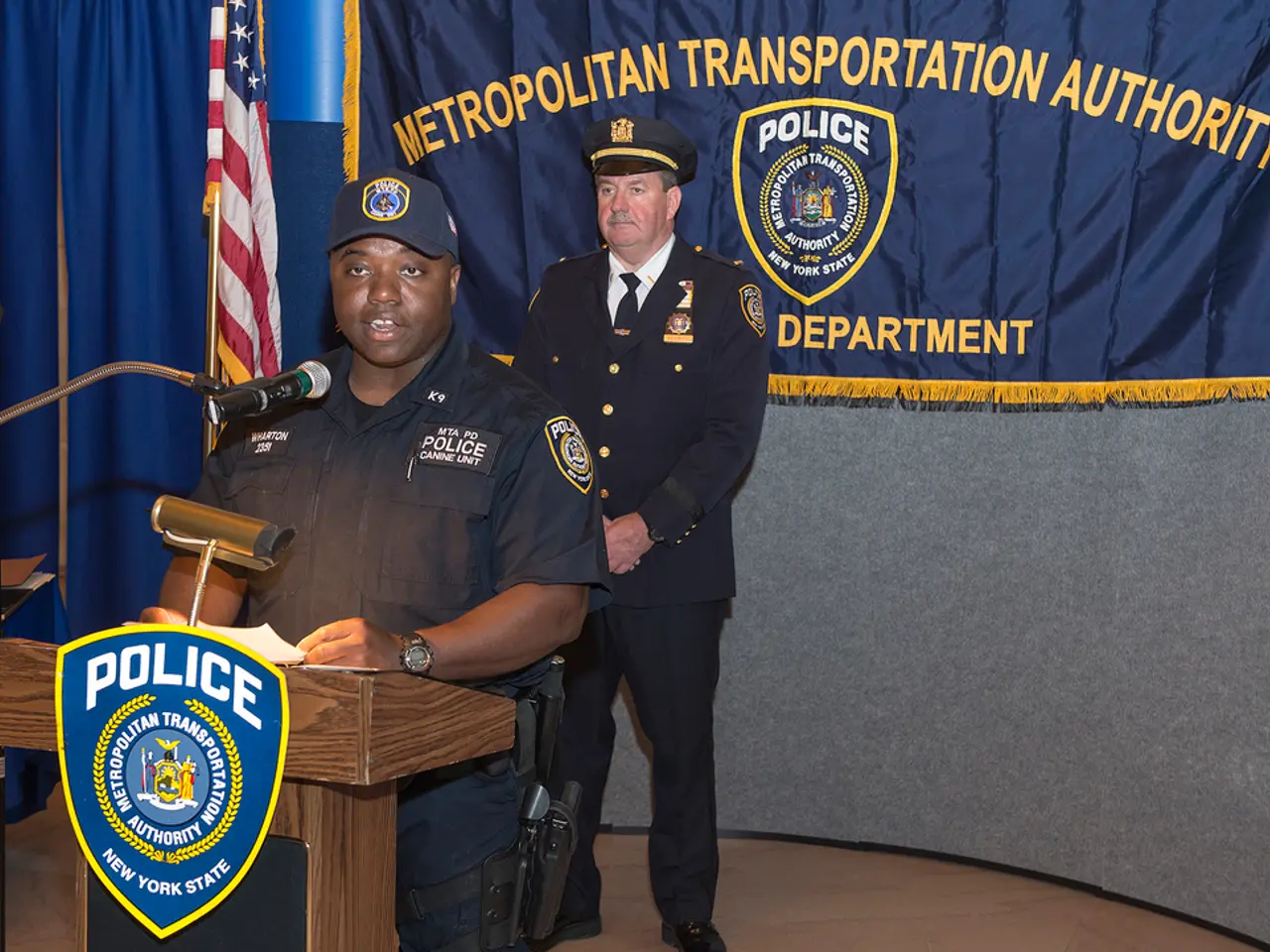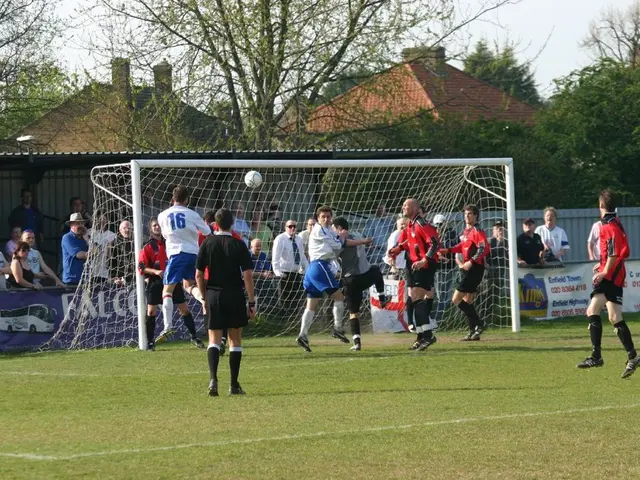Trump's shift towards authoritarian governance
In the heart of the United States, a political storm is brewing over the recent deployment of hundreds of National Guard troops and federal agents in Washington, D.C.
The deployment, initiated by President Donald Trump, involves over 800 D.C. National Guard troops, with additional troops from Republican-led states such as West Virginia, Mississippi, Ohio, and South Carolina, totalling more than 1,700 as of mid-August 2025. These troops, largely unarmed, are stationed in tourist-heavy areas of the city, including near the White House and Washington Monument.
Trump claims that this deployment has helped reduce crime quickly in D.C., but evidence for a significant drop in crime is lacking, with crime statistics showing a 30-year low and a continuing downward trend.
The controversy arises from criticism that this deployment is a "manufactured emergency." Critics, including Democratic leaders, argue that the move appears to be a show of force aimed at asserting control in the capital and potentially influencing public opinion ahead of the mid-term elections. Maryland Senator Chris Van Hollen described it as "an opportunity for Donald Trump to play dictator in Washington, D.C."
The politically motivated nature is further implicated by Trump's suggestion that similar federal deployments might be expanded to Democratic-leaning cities such as Chicago, New York, Los Angeles, and Oakland. This raises concerns about the militarization of domestic policing and federal interference in local jurisdictions.
The DC police union has welcomed the troop reinforcement, but only on a temporary basis. However, Washington, D.C. lacks police due to difficulties in recruitment and retaining agents, as well as budgetary limits set by Congress. The White House's normalization of the use of military for police functions, a practice seen in pseudo-democracies and dictatorships, has been met with criticism.
Potential implications include undermining local law enforcement authority, escalating tensions rather than addressing root causes of crime, and politicizing security operations to sway electoral outcomes. Such federal actions could contribute to increased distrust between communities and law enforcement, and raise constitutional questions about the balance of power between federal and local authorities.
Governor Gavin Newsom of California has argued that this deployment without his consent was illegal. Trump's denunciations of crime in "democratic" cities are not new, and the deployment in peacetime in the United States has never been seen before.
In the worst-case scenario, the deployment could justify the postponement of mid-term elections in territories politically unfavorable to Republicans. Washington, D.C. has a serious crime problem that concerns its citizens, but the question remains whether this deployment is a necessary step to maintain order or an abuse of executive power with significant risks for democratic norms and local governance.
[1] Source 1 [2] Source 2
The unexpected deployment of National Guard troops and federal agents, initiated by President Trump, has caused a political uproar, with critics viewing it as a "manufactured emergency" aimed at asserting control and potentially influencing the mid-term elections. This controversy over policy-and-legislation and politics extends to the suggestion of expanding such deployments to Democratic-leaning cities, raising concerns about the militarization of domestic policing and federal interference in local jurisdictions. [1] [2]
The politically charged nature of the war-and-conflicts and general-news scenario is further highlighted by Governor Gavin Newsom's argument that the deployment without his consent was illegal, and the White House's normalization of military for police functions, seen in pseudo-democracies and dictatorships, sparking criticism. Potential implications include undermining local law enforcement authority, escalating tensions, and politicizing security operations, which could raise constitutional questions about the balance of power between federal and local authorities. [1] [2]






